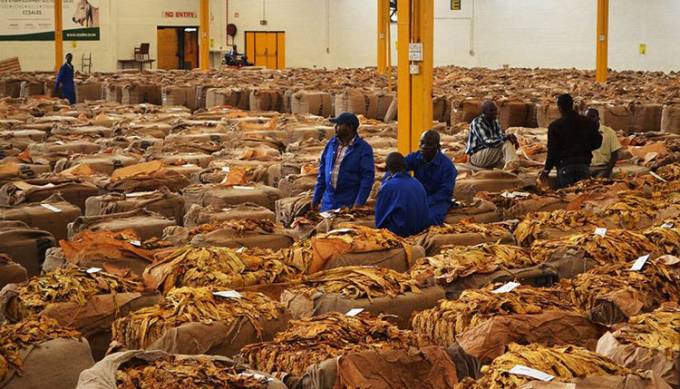
The Sunday Mail

Livingstone Marufu
ZIMBABWE could save up to US$1 billion annually through effective implementation of the agro-imports substitution programme, commonly referred to as Command Agriculture, a senior Government official said.
Government conceived the programme as a prudent way to cut the country’s unsustainable import bill, through increased local production to boost employment creation and leverage industrial capacity utilisation.
As such, through Command maize production, Government has reportedly saved over US$257 million in foreign currency that could have gone to grain imports this year.
Driven by the overwhelming success of the programme in maize, Government has extended Command Agriculture to other crops such as wheat, soyabeans, rice and livestock sector, which could help Zimbabwe cut its trade deficit.
Agriculture, Mechanisation and Irrigation Development Deputy Minister (Crop Production) Davis Marapira told The Sunday Mail Business that the import substitution programmes could save the country foreign currency if extended to other key crops and livestock to increase local production.
“It is high time the country took all Command programmes seriously as we foresee ourselves saving a great deal of the much needed foreign exchange, up to US$1 billion.
“If we produce soyabeans up to 300 000 tonnes annually, we will save US$200 million; maize for domestic requirements could save us US$300 million, while sufficient wheat production could save US$200 million; localised rice production will save the country US$150 million and other command products like potatoes will save over US$200 million,” Deputy Minister Marapira said.
The deputy minister said the increased local production will help the country improve food security, save foreign currency, cut trade deficit, increase capacity utilisation of the manufacturing industry, supply industry with much needed raw materials and increase exports.
Government has already started import substitution programmes on wheat, livestock and soyabeans.
No to permits issuance
Deputy Minister Marapira said it is a shame that the country has now been reduced to a wholesaler of import permits.
“The Ministry of Agriculture, Mechanisation and Irrigation Development and that of Industry and Commerce have reduced themselves into import permit wholesalers. Whenever there is shortage we are just giving out permits willy-nilly without looking into supply issues.
“We cannot continue issuing permits, this must stop, it’s totally wrong. We are already in the red as far as foreign currency is concerned. This is a clear indication that we must produce locally. Instead of issuing permits we should give contracts to the importers to contract more farmers or producers so that we can produce locally.
“Every time we issue permits, we are destroying our economy, we are throwing away foreign currency and dignity while creating jobs for other countries,” he said.
Government will this year start an intensive three-year rice production programme, which is expected to save US$150 million yearly.
The country is also reviving potato breeding centres in Nyanga and will stop potato seed importation from South Africa, which supplies over 75 percent of Zimbabwe’s potato seeds.
Agric to push up export earnings
Deputy Minister Marapira said agriculture as the back bone of the economy should be able to push up export earnings above 50 percent.
“We have the best climate in the whole world and any crop can do well in Zimbabwe, so why can’t we produce all crops locally to increase our export earnings to earn the much needed foreign currency and create employment for our people?
He went on: “As always emphasised by the Reserve Bank of Zimbabwe Governor Dr John Mangudya; production, production and more production is the panacea to all our current economic production.
“It is everyone’s duty to increase local production to earn the much needed foreign currency and create employment.
“No production, no foreign currency, no employment and more problems for the country, we should work together to solve this production puzzle.”
Zimbabwe has saved US$2 billion following the implementation of Statutory Instrument 64 of 2016, a measure taken by Government to restrict imports of basic products that can be produced locally.






